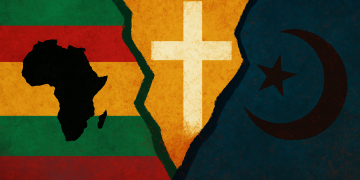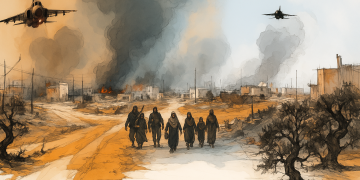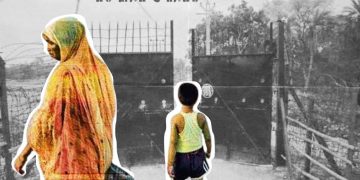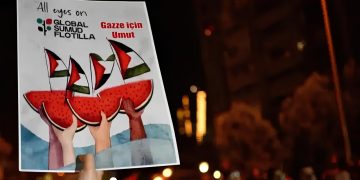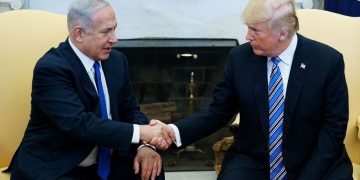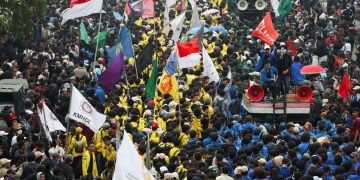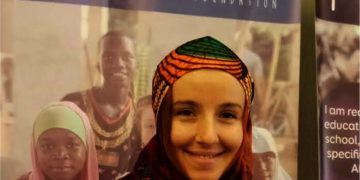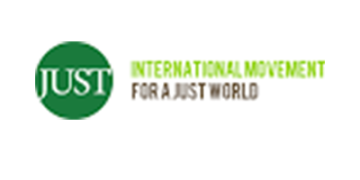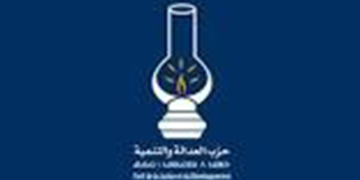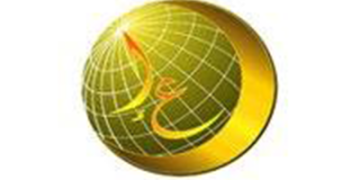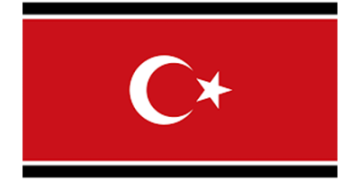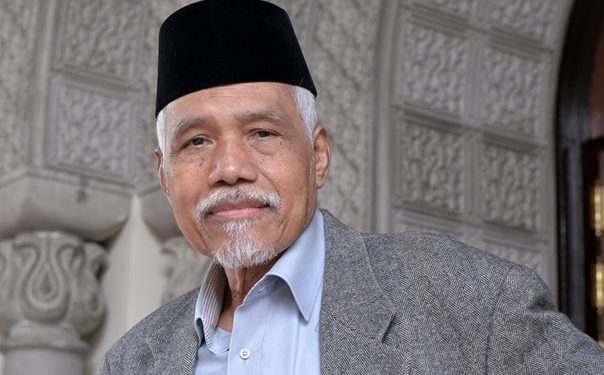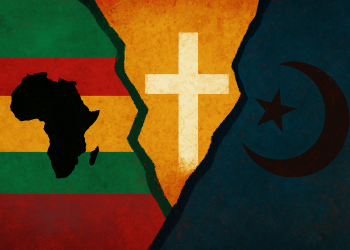Malaysian scholar, who has made great contributions to contemporary Islamic thought in the fields of Islamic philosophy, Islamic epistemology, history and philosophy of science, technology and ethics. Dr. Osman Bakar is the chair of the al-Ghazali Chair of Epistomology, Civilization Studies and Tajdid at the International Institute of Islamic Thought and Civilization-ISTAC and a retired lecturer at the University of Malaya. Before that, he worked as a manager in research centers of various universities such as University of Malaya, Brunei Darussalam University, and Georgetown University. He is also the founder and former president of the Malaysian Academy of Islamic Sciences. Chosen as one of the five hundred most influential Muslims of 2023 worldwide, Bakar is also counted among the top twenty scholars in Malaysia. Bakar, who is one of the intellectuals who shaped Islam in Southeast Asia, has forty books, which he wrote and edited, and more than three hundred articles. His works have been translated into various languages including Turkish, Indonesian, Arabic, Persian, Urdu, Bosnian, Bengali, Albanian, Japanese, Korean and Spanish. Bakar has been awarded many prestigious awards throughout his academic life. One of Bakar’s greatest contributions to contemporary Islamic thought is his call for an epistemological renewal in the Islamic world.
Rethinking “Knowledge” in the Contemporary Era
The effects of the Western colonization, under which most nations, especially Muslim nations, lived for centuries in the world, in the political, economic, intellectual and cultural fields, continued to have its effects untl the contemporary period. One of the important indicators of this effect has occurred in the epistemological field. The West’s view of knowledge from its own perspective has often led to a reductionist and discriminatory understanding and classification of knowledge, that erodes the intellectual accumulation of the locals as well. In the contemporary period, many Muslim scholars and thinkers have focused on this issue and have worked to get rid of the intellectual effects of the Western colonization. One of the most prominent figures of this movement in Southeast Asia is undoubtedly Osman Bakar. Bakar believes that the information crisis in the Islamic world is the result of the stagnant mindset in the ummah since the 16th century, the effects of Western colonialism, materialism and secularism. Bakar, who called for an “epistemological renewal”, expressed the need for reconceptualization of knowledge in many of his works, and demonstrated this theoretically and practically. Bakar basically defends the importance of “dual knowledge unity”. In the first stage, the boundaries of the concept of science are drawn again and a synthesis of the humanities, social sciences and natural sciences is formed. The second stage is the inclusion of divine views, values and ethics in the field of worldly sciences (Aljuneid, 2022, pp. 41-42. According to Bakar, secularism had a negative impact on the conceptualization of knowledge, creating a misconception that the narrative and scientific knowledge are located at two separate poles. They suddenly sought to become experts in the field because all aspects of science were for them a way of grasping the perfection of God’s divine design. The age-defying works and ideas of great Islamic scholars are also the result of seeing the inseparable link between mental and religious sciences. According to Bakar, one of the features of these ideas, which serve for the construction of a great civilization, is not to be limited to Islamic knowledge alone. Adopting a cumulative understanding of knowledge, Bakar talked about the necessity of an understanding of knowledge between civilizations, without making distinctions such as Buddhist, Taoist, or Muslim, and himself followed this path in his works (Aljuneid, 2022, pp. 42-47).
The Identity Crisis of the Muslim Ummah and the Vital Role of Tawhid Epistemology
Osman Bakar mentions that the contemporary Muslim Ummah is in an identity crisis. Bakar claims that the main reason for this crisis of knowledge and identity is the loss of traditional “tawhid epistemology”, which is characteristically creative, dynamic and holistic, balanced, moderate in social and developmental orientations, which in the past nurtured and sustained the knowledge culture of the ummah for centuries, thus helping to clearly elevate its identity as an information society (Bakar, 2019, p. 280). The epistemology of tawhid, which expresses a unity of knowledge and world system based on tawhid, approaches knowledge with a categorical position that “since everything is ontologically related to the divine beginning, then all human knowledge is ultimately related to the oneness of Allah” (Bakar, 2019, p. 288).
Bakar, who frequently emphasizes the need for an epistemological transformation in the 21st century, explains the main goal of this renewal as the creation of a new epistemology of tawhid, which is essentially the synthesis of traditional tawhid epistemology with the best modern and post-modern epistemologies (Bakar, 2019, p. 290). Bakar states that the identity of the ummah as knowledge and society depends on the fate of the tawhid epistemology that perpetuates it, and argues that this epistemology has important consequences for the identity of the ummah.
Osman Bakar thinks that the Islamic ummah’s vision of total knowledge is still blurred, the epistemology of tawhid has narrowed, and the ummah is almost trapped in the centuries-long conflict between modern and secular epistemologies. In his works, he emphasizes the inadequacy of Islamic epistemology and the lack of adoption of an Islamic epistemology that will enable one to realize the limitations and dangers of the prevailing Western-origin secular epistemologies. In this context, Bakar states that the lost and forgotten dimension of tawhid epistemology should be rediscovered. He states that this epistemology is complete and has the power and capacity to be the source of principles to guide human thought and knowledge activities. According to Bakar, knowledge hierarchy and harmony belief are among the most important missing elements of tawhid epistemology. The loss of these basic beliefs will have vital effects on the Muslim vision of knowledge and the health of knowledge culture. Moreover, according to Bakar, this dichotomy in the separation of knowledge into “secular” and “religious” is not limited to theoretical discussions, but also has important practical consequences in terms of state action and social relations. (Bakar, 2019, pp. 288-90). In this context, Bakar’s work plays a major role in formulating valuable epistemological ideas from the past to the present, reconceptualizing them in a contemporary language, making them easier to understand and making them easily internalized by Muslim generations.
Bakar’s studies on the need for an epistemological renewal feed the idea of “Islamization of knowledge”, which has come to the fore in Islamic countries in recent years. For example, his work titled Classification of Knowledge, which is the only study of this nature on the classification of sciences in the contemporary period, in which he critically examines the classification of sciences made by some scholars in the classical period from a philosophical point of view, is the Islamization of knowledge by grounding the subject with both Islamic intellectual accumulation and Western philosophy. It has been a work that has made a very important contribution to the debate (Bakar, 1992, p. xiii-xiv). Bakar pointed out that the religious acceptance of intellectual-rational sciences in Muslim higher education institutions has decreased as a result of approaching knowledge with a reductionist and discriminatory approach. He prepared the practical ground for approaching all kinds of sciences such as mathematics, engineering, psychology and sociology in educational institutions with Islamic knowledge and made detailed curriculum recommendations (Bakar, 2019, p. 287; Bakar, 2012, p. 249). Today, such curricula, to which Bakar also contributes, are successfully implemented in Malaysia International Islamic University, which was established with the mission of Islamization of knowledge.
Islam, Science and Technology
After completing his undergraduate and graduate education in mathematics, Osman Bakar focused on Islamic philosophy. He also specializes in the history and philosophy of science. He has produced many studies on philosophy of science, philosophy of medicine, science and technology, the relationship between religion and science, the scientific relations of Islamic civilization and the West, the differences between the understanding of science in Islam and modern science, and the reconceptualization of modern science. These are the studies that shape the mentality of contemporary Muslim societies. Bakar refers to the studies of Muslims in mathematical sciences, natural sciences and cognitive sciences throughout history as “Islamic science”. He claims that all of these sciences are “Islamic” to the extent that they are based on the fundamental teachings of Islam on a metaphysical, cosmological, ethical and moral level. These and similar statements of Bakar are closely related to the idea that knowledge is Islamic. Bakar frequently emphasized the principle of tawhid as the only principle that encompasses all sciences. This emphasis on “knowledge of tawhid” in his works also had reflections and effects on the field of dialogue between civilizations (Nielsen, 2008, pp. 84-85).
Bakar, who reveals the understanding of truth and epistemology expressed in the Qur’an and hadiths with his works, claims that this understanding offers solid reasons for criticizing the ontological and epistemological foundations of modern science and technology. Making meaningful and necessary changes in science and technology necessitates this criticism. Bakar says that it is a problem that modern science is the sole determinant of truth in the minds of the people of the world in the contemporary period, and that science and technology has turned into a great obsession of becoming the only indicator of humanity’s progress. It also emphasizes that it is wrong to see science as the main source of societies’ worldview, epistemology, ethics and morals, and to believe that technology is the practical solution to all problems. He mentions that these obsessions are the greatest misfortune of the contemporary period (Bakar, 2012, p. 235). According to Bakar, while accepting many achievements of modern science and technology, we also need to see its flaws that harm civilizations. Bakar, who works on associating religion with science and technology, and establishing a religious and moral basis for science and technology, stated that this can only be achieved by accepting religion as an ally of science. The Western scientific community lacks the unity of religion and science, as the West has experienced a conflict between religion and science for most of its modern history and sees religion as an obstacle to scientific development. However, Bakar stated that the harmony between religion and science is a characteristic of Islamic civilization, since the experience of Islam on this issue is much different.
Bakar mentions that in many Muslim societies at the beginning of the 21st century, the ongoing link between divine law and technology broke. He states that Muslims mostly face a moral challenge when dealing with science and technology issues that do not belong to them. He brought up the issue of re-applying Islamic morality to current issues in science and technology, especially in the face of these difficulties encountered in bio-technology, including military technology and medical technology, and carried out studies in this direction (Bakar, 2019, pp. 130-132).
Bakar also drew attention to the methodology problem in Islamic societies in the scientific field. He stated that Muslims succumbed to the claim that the modern understanding of science emerged with a single methodology called the “scientific method”. He emphasized the non existence of the idea which claims that only one type of natural science is possible. He drew attention to the misleading of using this scientific method, which was adopted only by the West, in measuring the scientific productivity and reliability of the pre-modern era. He made efforts to reveal a new Islamic science methodology that traces the scientific methodology in the tradition of Islamic thought (Bakar, 2012, pp. 27-33).
According to Bakar, Muslims in the contemporary period should be committed to the idea of making Islam the primary motivating force of scientific and technological progress. According to Bakar, the most important factors that made it possible for Muslims to show striking success in the field of science and technology in the past are: the correct understanding of the spirit of tawhid, the inspiration for the study of various sciences, the great translation activities that lasted for several centuries, the development of a philosophy devoted to scientific progress and development, science and technology activities by the administrators, respect for different schools of thought, and the balance established between the main intellectual perspectives of Islam. In the contemporary period, he has frequently emphasized that Muslim societies should give importance to these and strive to achieve success in this field (Bakar, 2012, pp. 245-246).
Conclusion
One of the most destructive crises faced by the Muslim individual in the contemporary period is the information crisis. Osman Bakar propogates an epistemological view that advocates a holistic and inclusive understanding of knowledge against a secular and reductionist understanding of knowledge, that feeds on a single civilization and ignores the accumulations of other religions, cultures and civilizations. Claiming that knowledge is Islamic and its source is the Qur’an and Sunnah, he argued that knowledge and science should be reintegrated with values and beliefs in the contemporary world. He draew attention to the flawed aspects of modern science and technology and emphasized that the Muslim Ummah is a community capable of building a real civilization with the right knowledge and understanding of science. Bakar called for an epistemological renewal and revealed the importance of the epistemology of tawhid. Thus, he made significant contributions to the liberation of Muslim minds from the intellectual domination of the West as much as possible in order to get them closer to the truth. Bakar aimed to evaluate the accumulation of tradition from a philosophical point of view and to convey this in an effective and simple language that appeals to contemporary generations. He succeeded in presenting solutions to the issues of that age, both theoretically and practically, with an Islamic point of view. Ultimately, he became one of the important living figures of contemporary Islamic thought, who made a name for himself in the East and West.
References
Aljuneid, Khairudin. (2022). Shapers of Islam in Southeast Asia Muslim intellectuals and the making of Islamic reformism. London: Oxford University Press.
Bakar, Osman. (1992). Classification of knowledge in Islam. Malezya: Institute for Policy Research.
Bakar, Osman. (2012). İslam bilim farihi ve felsefesi. İstanbul: İnsan Yayınları.
Bakar, Osman. (2019). İslam medeniyeti ve modern dünya: Tematik makaleler. İstanbul: İnsan Yayınları.
Nielsen, Katherine. (2008). Philosophy of Osman Bakar. International Studies in The Philosophy of Science, 22(1), 81-95.








